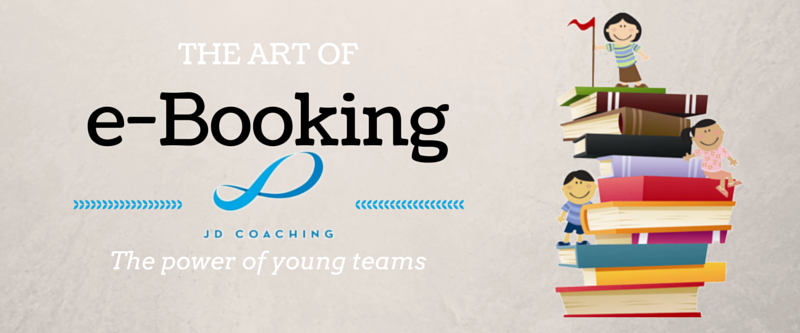Today we are in the “age of technology”, making our consumers more educated than ever. Technology has revolutionised and changed the way businesses market and sell products. If you aren’t positioning yourself online then you are losing ground in the game of “entrepreneurship”. Having an online presence is the differentiating factor between recognition and flying under the radar. Consumers are smarter and more aware than ever, which is forcing businesses to establish content that is going to place them ahead in the game, or in other words, position them as the “expert” in the industry.
In the coming weeks I will be releasing my first E-Book called “The Team Effect: 8 reasons why team sport improves your child’s well-being”.
What follows below is a brief extract from the E-book, demonstrating why I believe participating in team sports at a young age can help children play a much bigger game in all aspects of life.
The opportunity for children to mature physically & mentally
I am always astonished at how many coaches, teachers and parents display large amounts of frustration while children are playing sports. One of the greatest unit’s I ever took at university was “Motor Learning” which covered how human beings learn skills. I remember our lecturer would consistently drill into our heads “the more mistakes made early in learning, the better the end result”. In team sports children have one of the greatest opportunities to not only learn how to throw, kick or shoot a ball but they also have the opportunity to undertake social and emotional learning.
Young team environments have the potential to turn into the battle ground of individuals. It is not unusual in team sports to find the attention seeking child who will try to dominate the environment and make his/her presence felt. On the other end of the spectrum there are others who were like me – the quieter child who would often try to go unnoticed in the group because of a lack of confidence.
After a recent survey JD Coaching conducted on children’s well-being, we found that 40% of children in primary schools have experienced either bullying, anxiety and other related mental health issues. Team sports provide the perfect opportunity for young children to not only improve in sports but also mature and grow as individuals as they learn how to control emotions and interact respectfully with their peers. The power to have a positive influence on these issues is found in our younger generations, which is why greater education in something enjoyable – like sports – needs to take place.
Healthy Relationships
During my 16 years of experience in team sports, I have come to understand the very important concept of player relationships. Once children have learnt social and emotional skills, it is easier for them to interact and make friends with people on their team. Having been a slow learner as a young student, I realised that as my physical, social and emotional skills increased, my confidence grew.
Carl Rogers is one of the most famous psychologists of all time and revolutionised counselling when he developed the well-known Person Centred Therapy. This whole approach is based on empathetic, positive and understanding relationships between counsellor and patient. I have found the relationships between players in a healthy team environment very similar. The power of positivity and understanding in team sports is the difference between a “good” and “great” team. If children can learn to conduct understanding and positive team relationships, they will take this skill into future walks of life.
The Ripple Effect
The degree to which team sports can improve a child’s well-being is incredible and many haven’t fully tapped into its full potential. Possibly the greatest source to its power, is the environments ability to inspire children to empower their peers. I believe there is nothing more uplifting for a child than when their peers encourage or recognise their achievements. As mentioned earlier on, empathy and understanding is a powerful tool to create effective relationships in counselling. This is the same for teams – children understand children better than adults. With guidance we can educate children on how to turn team environments into an empowering place where everyone feels special and equal with each other.
The great ancient Greek philosopher Plato stated “Good actions give strength to us to inspire good actions in others”. I live by this quote as I believe we can empower and inspire greatness in others.
If you would like to read more on the “The Team Effect: 8 reasons why team sport improves your child’s well-being” please visit www.jdcoaching.com.au and subscribe to receive it when it becomes available.
References
Kottler. A. J., & Shepard. S. D. (2011). Introduction to Counseling: Voice from the field (7th edition.). United States of America: Brooks/Cole, Cengage Learning.
![Project […]](https://projectsquarebrackets.com.au/cms/wp-content/uploads/2015/09/PSB_Logo_For_Site_Use_Header-644x139-300x64.png)
